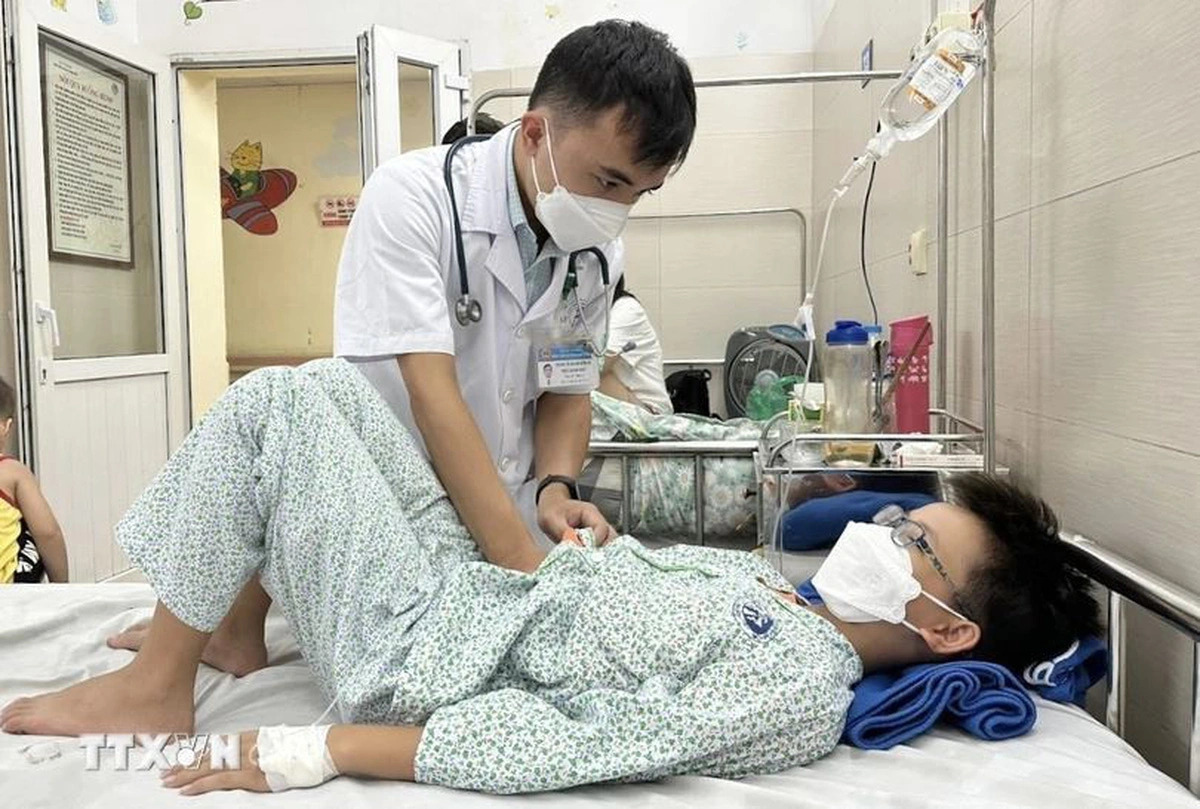A total of 114,906 cases of dengue fever had occurred across Vietnam as of late November, killing 18 patients, the Ministry of Health has reported at a recent seminar that reviewed the dengue situation in the country.
The event was held in Hanoi on Tuesday by the Vietnam Government Portal with many experts on dengue fever in attendance.
Compared to the same period last year, the tally of dengue patients by late last month was 20.2 percent lower and the death number was 22 less.
However, experts are flagging complicated developments, including geographical distribution, that are putting heavy pressure on the health sector.
Prof. Dr. Vu Sinh Nam, a senior advisor on dengue fever at the Central Institute of Hygiene and Epidemiology and general secretary of the Vietnam Preventive Medicine Association, warned the epidemiology of dengue in Vietnam has changed, the website chinhphu.vn reported.
In the past, dengue was mainly concentrated in the Mekong Delta and the central coast, but it has now spread to the southeast, north-central, and Central Highlands regions, Dr. Nam said, emphasizing northern localities like Hanoi and other mountainous provinces have begun recording dengue cases.
Dengue fever, which typically sees a major epidemic every 10-12 years, has surged in frequency, with Vietnam experiencing two significant outbreaks in recent years.
The 2019 epidemic saw over 300,000 cases, while the 2022 outbreak escalated to more than 370,000 cases, resulting in hundreds of fatalities.
Globally, dengue infects 100-400 million people annually, causing over 10,000 deaths. In Vietnam, the disease affects an average of 200,000 people each year, with approximately 40 fatalities, according to Dr. Hoang Minh Duc, director of the health ministry’s Department of Preventive Medicine.
Dengue fever is caused by four distinct virus types, each with complex development patterns and immune responses, making it extremely challenging to predict and manage outbreaks effectively.
“Dengue fever is becoming increasingly unpredictable and dangerous as its endemic areas continue to expand,” said the expert.
In the past, mosquito larvae and mosquitoes were mainly in the Mekong Delta and then in urbanized areas, with 11 northern mountainous provinces never reporting any cases.
But now, dengue mosquitoes have moved along with the expanded transportation and urbanization systems of many provinces to reach northern mountainous provinces, the expert explained.
As there is no specific treatment for dengue fever, many experts shared the same view that vaccination is the most effective weapon in the fight against the infectious disease.
On September 20, Vietnam Vaccine Joint Stock Company (VNVC) launched Qdenga, a dengue fever vaccine produced by Japan’s Takeda Pharmaceutical Company Limited for people aged four and above.
According to VNVC, this vaccine was researched and developed by Takeda for nearly 45 years before being approved for public use.
Previously, prevention and control of dengue relied mainly on dengue vector control and changes in people's behavior and habits, Dr. Nam said.
Uncontrolled urbanization, climate change, warming global temperatures, and fast-developing transportation have created conditions for vectors to develop and spread rapidly globally.
Dr. Nam affirmed that unlike mosquitoes that transmit malaria or Japanese encephalitis, which live outdoors, Aedes aegypti mosquitoes that transmit dengue live indoors, bite humans, and reproduce by laying their eggs in stagnant water.
Therefore, the health authority needs the active and proactive participation of residential communities in eliminating the dengue mosquitoes, Dr. Nam stated.
To combat dengue fever, residents are urged to prioritize vaccination and take proactive measures to eliminate stagnant water in homes and public spaces, which serve as breeding grounds for mosquitoes.
The World Health Organization has identified dengue fever as one of the top 10 global health threats.
The disease has seen a dramatic rise in cases over the past two decades, increasing tenfold to over five million in 2019 from 500,000 in 2000.
Dengue fever typically presents with a high fever lasting two to seven days, often accompanied by hemorrhagic symptoms such as petechial spots, nose or gum bleeding, bruising, and, in pubertal girls, abnormal vaginal bleeding.
While anyone can contract dengue fever, certain groups face a higher risk, including children, pregnant women, and individuals with chronic conditions or obesity.
Like us on Facebook or follow us on Twitter to get the latest news about Vietnam!


















































